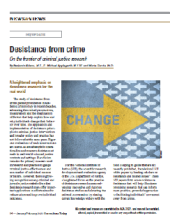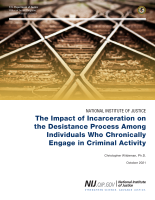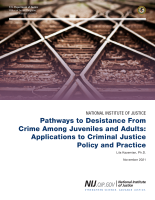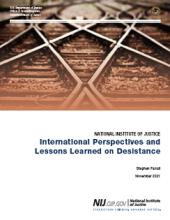Desistance from crime
From Successful Reentry to Stronger Communities
Desistance: It's a Process, Not an Event
It's Not About Me No More: Fatherhood and Mechanisms of Desistance Among At-Risk Men
Justice for All: Trauma and the Need for Safety and Fairness Within Juvenile Justice Facilities
Crime and Justice: A Review of Research, Volume 28
NIJ FY22 Research and Evaluation on Desistance from Crime
Desistance from Crime: On the Frontier of Criminal Justice Research
Desistance From Crime: Implications for Research, Policy, and Practice
Most scholars would agree that desistance from crime – the process of ceasing engagement in criminal activities – is normative. However, there is variability in the literature regarding the definition and measurement of desistance, the signals of desistance, the age at which desistance begins, and the underlying mechanisms that lead to desistance. Even with considerable advances in the theoretical understanding of desistance from crime, there remain critical gaps between research and the application of that research to practice.
See the YouTube Terms of Service and Google Privacy Policy
Traumatic brain injury and adverse psychological effects: Examining a potential pathway to aggressive offending
A Longitudinal Examination of the Association Between Intelligence and Rearrest Using a Latent Trait-State-Occasion Modeling Approach in a Sample of Previously Adjudicated Youth
International Perspectives and Lessons Learned on Desistance
Executive Summary







